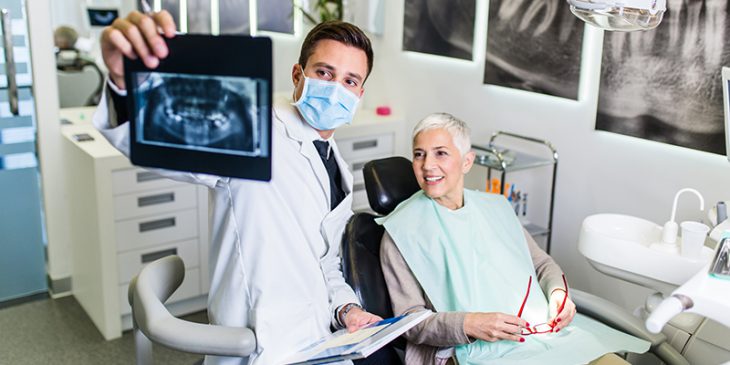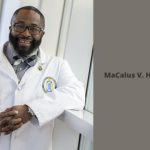Dr. Larry Cunningham Jr. is joining the faculty of the University of Pittsburgh Dental School and UPMC as chair of oral and maxillofacial surgery and associate dean for hospital affairs.
Cunningham comes from the University of Kentucky, where he served as professor and chief of oral and maxillofacial surgery for 18 years, specializing in complex facial reconstruction, jaw surgery to correct facial abnormalities, cleft reconstruction, nerve repair, and temporomandibular joint (TMJ) disease.
Cunningham’s expertise treating patients with facial differences, like clefts or traumatic deformities, will serve Pitt Dental’s mission to help patients born with facial anomalies live a full life.
In Pittsburgh, he also sees an opportunity to weave dental medicine seamlessly into other aspects of patient care, which he has been working on at a smaller scale at Kentucky.
 “One of the things we want to do is to integrate Pitt Dental into the fabric of UPMC, so we can better serve the medical needs of the community,” Cunningham said.
“One of the things we want to do is to integrate Pitt Dental into the fabric of UPMC, so we can better serve the medical needs of the community,” Cunningham said.
In particular, Cunningham sees an opportunity to integrate craniofacial and oral health into cancer care, trauma and transplant.
For instance, patients undergoing radiation or chemotherapy may develop dry mouth, which can increase the rate of tooth loss, Cunningham said. More frequent cleanings and fluoride treatments could help them keep their teeth, but if they have to go to a separate building across town to hear that message, or to receive that care, it might not happen.
Right now, the UPMC Head & Neck Cancer Survivorship Clinic at UPMC Montefiore offers oral health counseling and services integrated with cancer care. The eventual goal is to get all of these services under one roof.
Cunningham also envisions that maxillofacial surgeons could be part of head and neck cancer care from the beginning, to counsel patients in depth about how treatment might affect their facial structure and ability to eat and speak, as well as participating in complex reconstructions.
For transplant patients, swift and simple access to dental care could get them that tooth extraction they need so they can get on the list sooner, Cunningham said.
Facial trauma – commonly seen in car accidents – is another scenario where having oral and maxillofacial surgeons in the building would be beneficial.
“The services are there now, but accessing them is still a little clunky,” said Pitt Dental Medicine dean Dr. Bernard J. Costello. “There’s an illogical divide between dentistry and medicine that we’re trying to bridge, and Dr. Cunningham is going to lead that charge, because the research shows that an integrated team approach does much better at providing value to patients.”








